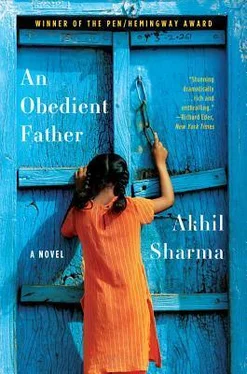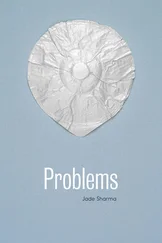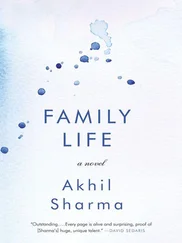After I had sex with the girl, I began discovering so many brothels with children that I thought it was a new fad, in the same way that Raj Kapoor's Charlie Chaplin walk would become popular. When I went to a brothel and learned I could have a child, I was always tempted. Occasionally while masturbating, I conjured the little girl spitting into her hands and rubbing the spit into her vagina. But I never again went to a child prostitute.
I left the navy when I was twenty-two. After the first year and a half, all the problems of being trapped on a ship with people I disliked had become unbearable. Thievery was so common that even my undershirts and socks were stolen. A man who slept in the bunk above me masturbated every night by mounting his pillow and rubbing against it until he came.
I left the navy in late June and immediately took a job as a physical education teacher in a boys-only school in Delhi. Teaching exercise did not take much time or effort. Most of any day I could be found drinking tea on a cot near the gate at the school compound. Five months after I started my new job, I married Radha.
K year or two after our marriage, Radha told me that she /X. and her sisters were so frightened of their father that since he did not like to see dry laundry still hanging on the clothesline, they took down the laundry while it was moist.
Radha was nineteen when we married. She was thin, with slightly jutting teeth which kept her mouth open and brittle hair that could never grow beyond shoulder length no matter how she took care of it. But Radha soon became beautiful to me.
Despite everything I had done in the navy, I believed that once I married I would be a faithful husband. Since marriage is so important a part of anyone's life, I thought I would be desolate if I was faithless.
And Radha had a capacity to watch and pay attention which made me feel safe. We spent the first week of our marriage in Beri. Radha had brought a bag of toffees to hand out to the children of all her new relatives. I asked her if her mother had suggested the sweets as a way to charm the relatives.
"No," she said, and then paused. It was night and summer, but because we had just gotten married, we were in the house instead of outside in the wind. Radha was sitting on our cot as I undressed. She was looking away from me. We had not made love yet because Radha was still anxious with me. "When I was a child, a neighbor got married and his wife gave out candies. I thought she was smart."
I was amazed Radha had carried this fact for years. I felt glad to be with someone this intelligent, because it meant she could take care of me. "You're smart, too."
"Not smart. I am understanding," Radha said, and became silent as if she had revealed too much.
Getting Radha to tell me a joke was as thrilling as teaching a wild rabbit to lick sugar from my palm. I took great pleasure in serving her and in furnishing our future together. The ritual of purchasing bedsheets and stainless-steel pots, a poster of a fat pink baby, a clock with hands that glowed in the dark soothed whatever concerns I had about the shape of my life, which seemed increasingly dominated by the silliness of my job, supervising children while they did jumping jacks or making them turn out their pockets after they finished playing table tennis so that no balls were stolen. Buying mangoes for Radha on my way home from work and telling her that she was my mango tree, my wish-granting tree, was a way of replacing
the rest of my day. Once, early on, I saw her with her fingertips wrinkled from bathing and I felt lucky to be able to age with her.
Later, Radha would say that even at the beginning of our life together, I took advantage of her pliability and innocence. As an example of this, she pointed to my returning home late after drinking with my friends and expecting her to be smiling and ready with food. Another example she used was our summer trips to Beri. Living in Delhi had made me miss village life, and when I told Radha I wanted to spend the summers in Beri, she acquiesced hesitantly. Radha had never lived outside Old Delhi, but she felt obligated to come with me. Village life is especially hard on women. All day Radha was running to the well or collecting firewood and cow dung to burn. My sisters-in-law hated Radha, perhaps because they kept thinking that I might claim some of the land that they wanted their husbands to inherit, and they tormented her. They would hide the laundry soap from her and give her the hardest work. Radha could not get used to the water and was often sick. Yet she kept accompanying me to Beri until Baby was born.
But I do not think Radha was referring to my selfishness and indifference when she said I took advantage of her. After all, at the beginning of our marriage she was mostly happy I think Radha meant I should have known that my love would not last. I had misled her, she believed, by treating her as if she were my heart walking unprotected in the world.
Our love wore out after three years, I think. There are always problems between two people, even when one is willing to give in on nearly everything. Despite Radha's demureness and traditionalism, which kept her from challenging me, she had a practical and calm intelligence that saw through all my illusions. When I fantasized out loud that I could move from being a teacher to being involved in citywide education administration and that from there it would be only a few steps to advising politicians and then finally running for election, Radha looked at me with such dismay that I invariably grew angry. Once I began believing that she saw through me, all her mannerisms of innocence, the way she covered her mouth when
laughing, struck me as deceptive. Also, of course, there was the eroding power of familiarity.
Radha located the end of our love with Baby's death. Baby was our first child. If he had lived to six months we would have named him Dil, because he was our heart. For many years I accepted this explanation. Now I think there must have been a hidden romantic in Radha for her not to have admitted that our love simply got used up. Instead, she chose a dramatic boundary. Baby was born in February 1955 and died four months later of some water sickness. I was in Beri and Radha was in Delhi, because she thought she could take better care of Baby there. Once he became ill, Radha sent me telegrams telling me to come home. She told me he had a fever that had made him wrinkled and dry, that there was blood in his stool, that he no longer even cried. But I thought she was exaggerating as a way to punish me for leaving her in Delhi. She sent me six telegrams. After the fourth, angry at the money she was wasting, I stopped responding, and when Baby died, Radha did not send a message.
The evening I returned to Delhi, Radha told me she had put the torch to Baby's funeral pyre herself I sat on a cot in our single narrow room as Radha described the cremation arrangements: the pyre the size of a bush, the kindness of the pundit, the way the people in her family scolded her for going to a crematorium. Radha stood stiffly before me with her arms hanging straight down beside her and her fingers stretched apart. She looked like a student making a presentation. The room opened directly onto a busy road, and the noise of the evening traffic was so loud that Radha's words sometimes got lost under horns and people calling out. I cried as she spoke. After Radha stopped talking, she stood and watched me cry. Then she went and made dinner. Night came. Traffic trailed off When dinner was ready, Radha came to me and said, "Don't cry, even though you cry such handsome tears." I did stop, but it was because the contemptuous words made me think that perhaps not only was she angry at me but she hated me.
For months after Baby died, Radha would begin to weep without any apparent reason. She could be doing the laundry or cooking din-
Читать дальше












